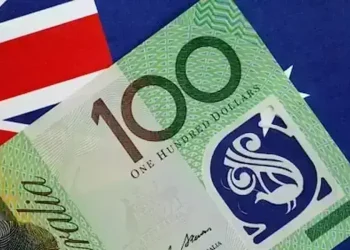PARIS/BEIJING: Chicago corn, wheat and soybean futures extended gains on Friday, supported by investor relief that U.S. President Donald Trump did not immediately impose reciprocal tariffs globally, as well as concern over crop weather in various parts of the world.
The most active corn contract on the Chicago Board of Trade (CBOT) was up 0.9% at $4.97-3/4 a bushel by 1213 GMT, rising for a third day towards a 15-month high struck last week.
CBOT soybeans gained 1% to $10.40-1/2 a bushel, adding to Thursday’s rebound from the lowest level in nearly a month.
CBOT wheat climbed 2.1% to $5.90 a bushel, also rising for a second session.
The dollar eased after Trump stopped short of imposing more tariffs on Thursday, providing a boost for commodities priced in the U.S. currency.
Trump’s decision to order his economics team to prepare plans for reciprocal tariffs was seen by investors as leaving scope for negotiations, though traders remain wary of a possible trade war and retaliation against U.S. agricultural exports.
“It’s a positive money flow day, with the dollar index down,” one European grain trader said.
Weather risks were also underpinning grain markets.
Traders were wrestling with the impact of drought in Argentina and southern Brazil before a recent improvement in rainfall.
Corn and soy ease, wheat rises as weather and exports weigh
The wheat market was reacting to a decline in French crop conditions and cold temperatures forecast in Russia and in U.S. hard red winter wheat areas, the European trader added.
The condition of French soft wheat has worsened sharply since December, data from farm office FranceAgriMer showed on Friday, fuelling concern that heavy rain is hurting crops.
Cold spells forecast in U.S. and Russian wheat belts in the coming days are also raising concern about crop damage.
Corn and wheat markets were also buoyed by brisk weekly U.S. exports, though wheat import tenders this week from Algeria and Saudi Arabia were expected to show continued Black Sea competition.
PARIS/BEIJING: Chicago corn, wheat and soybean futures extended gains on Friday, supported by investor relief that U.S. President Donald Trump did not immediately impose reciprocal tariffs globally, as well as concern over crop weather in various parts of the world.
The most active corn contract on the Chicago Board of Trade (CBOT) was up 0.9% at $4.97-3/4 a bushel by 1213 GMT, rising for a third day towards a 15-month high struck last week.
CBOT soybeans gained 1% to $10.40-1/2 a bushel, adding to Thursday’s rebound from the lowest level in nearly a month.
CBOT wheat climbed 2.1% to $5.90 a bushel, also rising for a second session.
The dollar eased after Trump stopped short of imposing more tariffs on Thursday, providing a boost for commodities priced in the U.S. currency.
Trump’s decision to order his economics team to prepare plans for reciprocal tariffs was seen by investors as leaving scope for negotiations, though traders remain wary of a possible trade war and retaliation against U.S. agricultural exports.
“It’s a positive money flow day, with the dollar index down,” one European grain trader said.
Weather risks were also underpinning grain markets.
Traders were wrestling with the impact of drought in Argentina and southern Brazil before a recent improvement in rainfall.
Corn and soy ease, wheat rises as weather and exports weigh
The wheat market was reacting to a decline in French crop conditions and cold temperatures forecast in Russia and in U.S. hard red winter wheat areas, the European trader added.
The condition of French soft wheat has worsened sharply since December, data from farm office FranceAgriMer showed on Friday, fuelling concern that heavy rain is hurting crops.
Cold spells forecast in U.S. and Russian wheat belts in the coming days are also raising concern about crop damage.
Corn and wheat markets were also buoyed by brisk weekly U.S. exports, though wheat import tenders this week from Algeria and Saudi Arabia were expected to show continued Black Sea competition.










 American Dollar Exchange Rate
American Dollar Exchange Rate